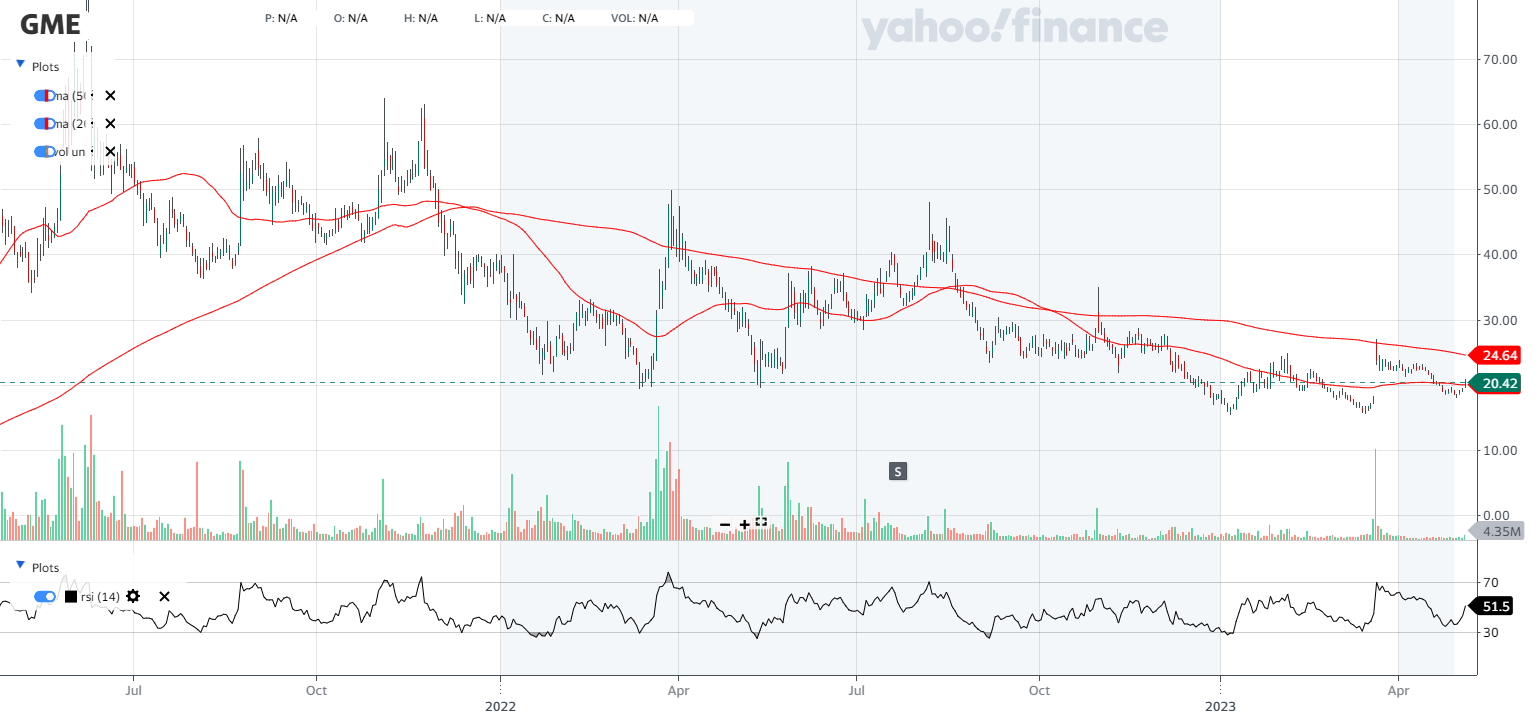GameStop – GME

Fundamental Analysis
GameStop, a US-based company, is a retailer of computer games, consumer electronics, and ancillary goods focused on the gaming industry. In 2021, the company had more than 4,500 physical locations (up from the most ever, more than 7,500 in 2016). Branches are in the Americas, Europe and Australia.
The company’s lackluster performance over the past few years has led many institutional funds to short the stock price. In 2021, the company and its shares came to the attention of the wider public after a rapid rise in the share price. Many retail traders got together through the social platform Reddit to arrange an organized purchase of shares. The share price soared more than 1,500% in two weeks, with the price reaching a high of $483 per share (after the split, the price converted to $120.75). The funds could not sustain such a sharp increase and were forced to sell the stock at a loss. Estimates of the funds’ losses were as high as $6 billion.
Now the company is trading at about $20 per share. Long-term economic indicators still view the share price as overvalued. According to Simplywall.st, the stock is overvalued by more than 800%, an appropriate price would be about $2 per share, not $20.
Results
The company has lost money every year since 2018. Sales volume has declined not only due to COVID19, but also due to the emergence of other sales channels that the company has not captured (online, etc.).
In 2022, the company lost $313 million (-390 million the year before) on sales of $5.927 billion. Revenues were comparable to 2021. Loss per share was $1.03, with a loss of $1.31 per share in 2021.
The company has cash or cash equivalent of $1.139 billion. Cash decreased by $140 million from 2021.
Technical analysis
Share volume is adequate, with daily volumes above 3 million shares traded per day. The stock is sufficiently liquid.
The stock is in a downtrend according to the moving averages.
The RSI is in the neutral zone.
The stock can rise or fall by more than 20% in a few trading sessions. The stock’s volatility is high, with a beta against the S&P500 of only -0.25. This is what investors need to keep in mind.
Conclusion
GameStop is a long-term loss-making company and is burning cash with each year of losses. However, with cash of over $1 billion, the company can operate for several more years at its current rate of losing around $350 million per year. The company’s long-term results correlate with the trading approach of many funds, i.e. short selling the stock. The aforementioned 2021 short squeeze can be considered an isolated event that had no correlation to the company’s economic performance. However, it must be remembered that there were losses of over USD 6 billion and the share price rose rapidly. Long-term growth of the share is not very likely, rather it will be a gradual further descent. In the short term, however, the stock is very volatile on both the upside and the downside. This may be interesting for short-term, speculative investors.
Sources:
https://gamestop